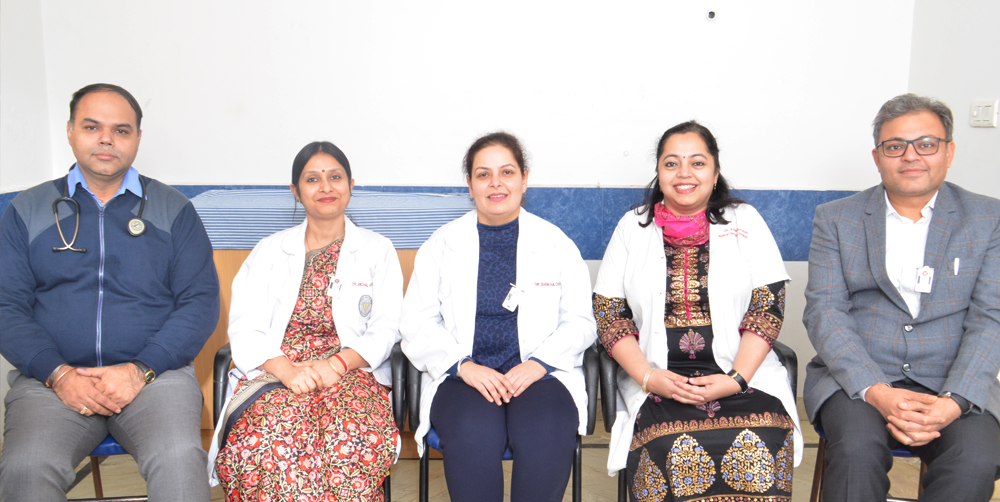Cancer Consultation and Personalized Treatment Planning :
After a cancer diagnosis, people with cancer and their families have to make a number of decisions about treatment. These decisions are complicated by feelings of anxiety, unfamiliar words, statistics, and a sense of urgency. But unless the situation is extremely urgent, take time to research your options, ask questions, and talk with family or a trusted friend.
Decisions about cancer treatment are personal, and you need to feel comfortable with your choices. But many people do not know where to start. Here are some simple but important steps you can take as you start the decision-making process. Patel Hospital provides the help to the patient to take the decision .These are some basic steps to follow if cancer occurs
(a).Understand your diagnosis :
Individual treatment plans depend on the type of cancer and stage. So you should learn as much as you can about your specific diagnosis. You may want to ask your health care team questions about the disease. But be careful when doing research online. Many sites can be frightening, inaccurate, or misleading. Your health care team can suggest trustworthy websites. If you come across unfamiliar words while researching online, use a medical dictionary or ask your health care team for an explanation.
(b). Know your options
Talk with your doctor about the treatment options for your type and stage of cancer. These options may include:
- Surgery
- Radiation therapy
- Chemotherapy
- Hormone therapy
- Targeted therapy
- Immunotherapy
- Active surveillance, also called watchful waiting
- Palliative care
- Participating in a clinical trial
(c). Understand the goals of treatment
Your doctor may use some treatments to slow, stop, or eliminate the cancer. He or she may also use palliative care, also called supportive care, to manage symptoms and side effects. Make sure your doctor explains the goals of your treatment plan and how it will affect you. And make sure it aligns with your personal goals for treatment
(d). Ask about the side effects of each treatment option
Sometimes cancer can cause long-term side effects, or late effects, that might develop months or even years after treatment. Talk with your health care team about the possible long-term effects of each treatment option and how they are managed. In addition, discuss possible sexual or reproductive concerns with your health care team, including the risk of not being unable to have children. You have more options to keep your fertility if you address this concern before treatment, instead of waiting until after treatment.
(e). Consider the risks and benefits of each treatment option
Weigh the positives and negatives of each treatment option, including the:
- Chance of a cure
- Potential short- and long-term side effects
- Likelihood that the cancer will come back after treatment
- Chances of living longer with or without treatment
- Effect on your quality of life and independence
- Preferences of you and your family
(f). Get a second opinion
Many people seek a second or even third opinion from another oncologist, and many doctors encourage it. Different oncologists may have different experiences with various treatments. So seeking multiple opinions can help you make a decision or confirm your current treatment plan. First check with your insurance company to find out if your policy covers a specific doctor or health care system.
(g). Find help managing the cost of cancer care
The cost of cancer care is often high, and you may have expenses that you were not expecting. Your health care team can help you identify costs related to your treatment options or suggest ways to manage medical and related costs. They can also refer you to support services that address the financial concerns of people living with cancer.
(h). Consult guidelines or other decision-making tools
The American Society of Clinical Oncology (ASCO) and other cancer organizations publish guidelines and treatment decision-making tools. These tools help doctors and patients understand various treatment options. Learn more about treatment recommendations for the specific type of cancer that you have. Talk with your health care team to find out more details about treatment recommendations..
(i). Discuss your decision with people you trust
Some people find it helpful to talk through their thoughts and concerns with people they trust. This may include:
- Family members
- Friends
- A member of the clergy
- A spiritual advisor
- An oncology social worker
- Another person with cancer
(j). Understand the role of statistics
Your doctor may mention statistics when describing treatment options. These may include relative survival rates, disease-free survival rates, and progression-free survival rates. These numbers may be a good way to learn how the treatment options differ. But they cannot predict how well the treatment will work for you. Your health care team can explain how these statistics relate to your treatment.















